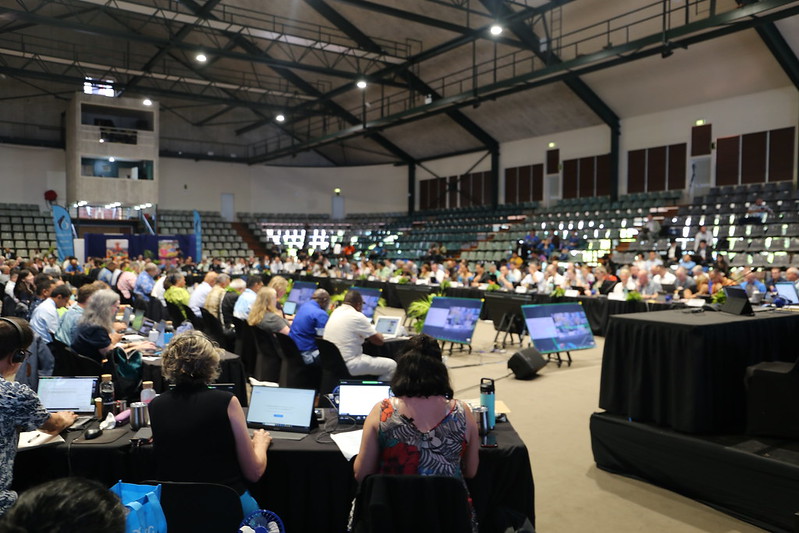By Elenoa Dimaira
There have been contrasting opinions regarding the need to enhance the presence of observers on longline fishing boats at the 20th meeting of the Western and Central Pacific Fisheries Commission in Rarotonga, Cook Islands.
The meeting which ends Friday, have seen proposals to reduce or eliminate observer coverage, much to the disappointment of civil society groups like WWF Pacific.
Bubba Cook, the Western and Central Pacific Tuna Programme Manager at WWF Pacific, expressed concern over the potential reduction in observer coverage. He highlighted that it took nearly two decades for fleets to achieve the current observer coverage of five percent. To ensure the sustainable management of fisheries, it is recommended to have a minimum observer coverage of 30 percent, he added. The reduction in observer presence could hinder efforts to combat Illegal, Unreported, and Unregulated (IUU) fishing in the Pacific, which is estimated to be worth over US$300 million.
On Wednesday evening, the meeting focused on the allocation of tuna resources among participating countries. These discussions often become contentious, as countries put forth their claims for the amount of tuna they are allowed to catch.
Cook said that while some countries had justifiable claims, there were some that were less justifiable.
The outcome of these discussions will determine whether new measures or provisions are established to support different allocations or if the previous Tropical Tuna Measure will be extended. The Tropical Tuna Measure guides fishing control for big eye, skipjack and yellow fin tuna in the Western and Central Pacific.
The meeting also addressed other important topics, including transshipment, labor standards, and compliance management schemes. Transshipment measures were a point of contention, with some member states attempting to weaken them, potentially reducing their effectiveness. The Forum Fisheries Agency (FFA), consisting of 17 member countries, is advocating for a review of transshipment rules to enhance monitoring, minimise unintended catches, and contribute to overall ecosystem health.
Furthermore, FFA members are pushing for better working conditions, fair wages, and the protection of workers’ rights within the fishing industry.
The discussions on transshipment, labor standards, and compliance management schemes are ongoing and will continue to be deliberated today. The outcome of these discussions will shape the future policies and regulations governing the fishing industry in the Western and Central Pacific region.
SOURCE: PASIFIKA ENVIRONEWS/PACNEWS














